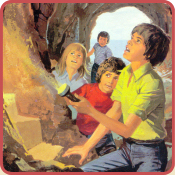
The Children of Willow Farm

Book Details...
First edition: 1942
Publisher: Country Life
Illustrator: Harry Rountree
Category: Farm Series
Genre: Farm
Type: Novels/Novelettes
Publisher: Country Life
Illustrator: Harry Rountree
Category: Farm Series
Genre: Farm
Type: Novels/Novelettes
On This Page...
Reprints
1. 1967 Merlin, illustrations and cover by Clyde Pearson
2. 1973 Dean, illustrations and cover uncredited
3. 1975 Armada, illustrations and cover uncredited
4. 1979 Beaver, illustrations by Tony Morris, cover by David Redmond
5. 1984 Dean, illustrations and cover uncredited
6. 1988 Beaver, illustrations by Tony Morris, cover uncredited
7. 1988 Dean, illustrations and cover uncredited
8. 1994 Dean, illustrations and cover by Vanessa Julian-Ottie
2. 1973 Dean, illustrations and cover uncredited
3. 1975 Armada, illustrations and cover uncredited
4. 1979 Beaver, illustrations by Tony Morris, cover by David Redmond
5. 1984 Dean, illustrations and cover uncredited
6. 1988 Beaver, illustrations by Tony Morris, cover uncredited
7. 1988 Dean, illustrations and cover uncredited
8. 1994 Dean, illustrations and cover by Vanessa Julian-Ottie


Wraparound dustwrapper from the 1st edition, illustrated by Harry Rountree
In The Children of Willow Farm, just like the previous book, we go through the seasons from spring to winter, learning along with the children. The book teaches the reader all about British farming as it was in the 1940s (or at least as it might have been without the war!) Blyton paints an idyllic picture of farm life, where the animals are part of the family and, unrealistically, there is never any mention of animals being sent for slaughter!
The Children of Willow Farm opens with the four brothers and sisters leaving their tall London house in order to move to Willow Farm, not far from Cherry Tree Farm. Chapters 2 and 3 contain a joyous description of moving to a house that is truly a home. Like Cherry Tree Farm, Willow Farm has an old-fashioned farmhouse with a thatched roof. Flowing through the farm are silvery streams, the willows along the banks giving the farm its name. We know from reading about willow houses elsewhere in Blyton's work (notably The Secret Island and The Children of Cherry Tree Farm) that willow carries on growing even after it has been cut. Therefore, the name "Willow Farm" is perfect for a place which is so full of life — where baby animals grow to maturity, seeds are planted and crops harvested, and the children themselves continue to develop. Even the house, steeped in history, is endowed with feelings and memories. It is constructed partly of timber recycled from old wooden sailing ships and Benjy says, touching a black oak beam, "Funny old beam — once you knew the fishes in the sea, and you creaked as great waves splashed over you. Now you live in a house, and listen to people's feet going up and down the stairs."
The children are eager to be involved in the work of the farm. Sheila quickly discovers that talking to someone with experience and getting them to help out is much better than trying to learn from books alone. Determined to take on responsibility for the hens, she struggles to understand books on poultry but, after talking to fifteen-year-old Fanny (the daily help, who has always kept hens), Sheila remarks, "Oh, Fanny. I've learnt more about hens from you in five minutes than I've learnt from all these difficult books." Likewise, her parents find Uncle Tim and Aunt Bess's advice invaluable and are glad of the help of Fanny and her Aunt Harriet, the cook, who are used to country life.
As well as caring for the hens, Sheila lends a hand in the dairy. Penny helps with the calves and feeds a lamb which has been rejected by its mother, while Benjy and Rory look after the horses. Benjy also helps to milk the cows, while Rory, being the eldest, is allowed to take on some of the more physically demanding jobs. They all learn plenty about farming — for example that a nesting hen should sit on thirteen eggs, why a cow has four compartments in its stomach, and how a plough works.
Penny's lamb, Skippetty, follows the older sheep through the sheep-dip at one point. Sheep-dipping is now a controversial issue and the idea of a little girl's pet lamb being dipped is worrying for the modern reader, though I don't know what kinds of chemicals were used in sheep dips in the 1940s.
Penny adores baby animals and she pleads with Skippetty, "... please don't grow up too soon, will you? You won't be nearly so sweet when you are a sheep!" This is similar to what Tammylan says to her about children: "Don't grow up too fast, little Penny! ... Calves are nicer than cows — lambs are sweeter than sheep — chicks are prettier than hens — and children are nicer than grown-ups! So don't grow up just yet!" He would be pleased to see that, during the course of the three books, the children age more slowly than normal. This is typical of Blyton characters, who often seem set to enjoy a perpetual childhood.
Skippetty, to Penny's dismay, ages in a more realistic manner and, after several months, she has to let him go into the field with the other sheep. Davey the shepherd comforts her by promising to give her one or two more lambs to rear in the spring and he urges Penny to cope with her sadness by looking forward rather than back: "... don't look sad and sigh for last spring and Skippetty — but look forward to next spring and new lambs to feed from a bottle!" He adds that farming is all about thinking ahead and planning, and the book endorses this positive outlook. These illustrations are hidden by default to ensure faster browsing. Loading the illustrations is recommended for high-speed internet users only.








